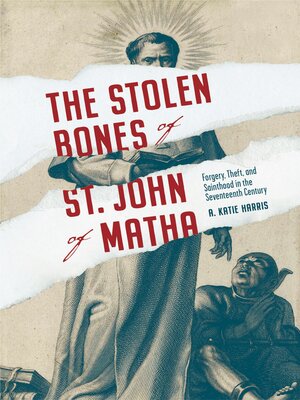The Stolen Bones of St. John of Matha
ebook ∣ Forgery, Theft, and Sainthood in the Seventeenth Century · Iberian Encounter and Exchange, 475–1755
By A. Katie Harris

Sign up to save your library
With an OverDrive account, you can save your favorite libraries for at-a-glance information about availability. Find out more about OverDrive accounts.
Find this title in Libby, the library reading app by OverDrive.



Search for a digital library with this title
Title found at these libraries:
| Library Name | Distance |
|---|---|
| Loading... |
On the night of March 18, 1655, two Spanish friars broke into a church to steal the bones of the founder of their religious institution, the Order of the Most Holy Trinity. This book investigates this little-known incident of relic theft and the lengthy legal case that followed, together with the larger questions that surround the remains of saints in seventeenth-century Catholic Europe.
Drawing on a wealth of manuscript and print sources from the era, A. Katie Harris uses the case of St. John of Matha's stolen remains to explore the roles played by saints' relics, the anxieties invested in them, their cultural meanings, and the changing modes of thought with which early modern Catholics approached them. While in theory a relic's authenticity and identity might be proved by supernatural evidence, in practice early modern Church authorities often reached for proofs grounded in the material, human world—preferences that were representative of the standardizing and streamlining of sixteenth- and seventeenth-century saint-making. Harris examines how Matha's advocates deployed material and documentary proofs, locating them within a framework of Scholastic concepts of individuation, identity, change, and persistence, and applying moral certainty to accommodate the inherent uncertainty of human evidence and relic knowledge.
Engaging and accessible, The Stolen Bones of St. John of Matha raises an array of important questions surrounding relic identity and authenticity in seventeenth-century Europe. It will be of interest to students, scholars, and casual readers interested in European history, religious history, material culture, and Renaissance studies.







